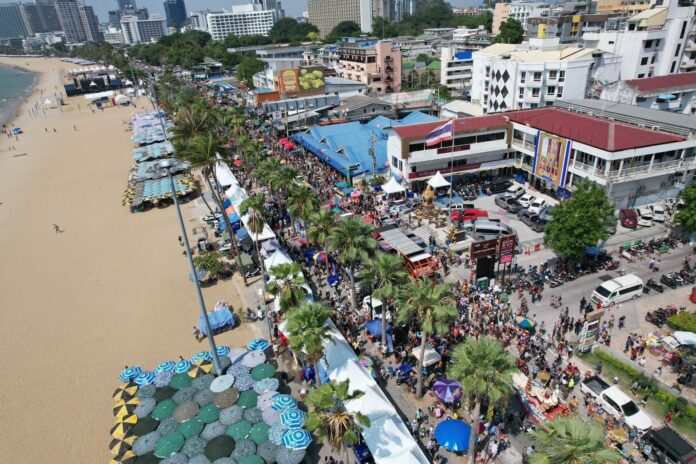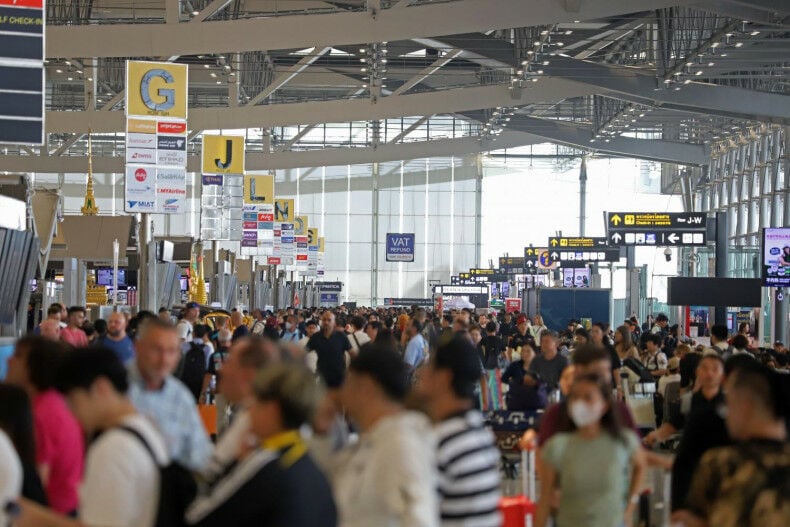File photo for reference only
BANGKOK – Thailand, a country that has long held a special place in the hearts of British travelers and expats, is witnessing a significant drop in the number of visitors from the United Kingdom. A detailed analysis by the Pattaya Mail, along with insights from industry experts, highlights a complex set of factors driving this shift. This trend raises concerns for Thailand's tourism-dependent economy, its expat community, and its future appeal to British travelers.
From Staple Destination to Shifting Tides
For decades, British tourists have flocked to Thailand's sun-drenched beaches, vibrant cities, and affordable cost of living. Expats have enjoyed the tropical climate, entrepreneurial opportunities, and the Thai hospitality that made the country a popular choice for establishing a life abroad. However, a combination of economic, bureaucratic, and competitive pressures is eroding Thailand's traditional appeal for British travelers.
The Cost Factor: Rising Expenses and Neighboring Options
The rising cost of international airfare, fueled by global inflation and fluctuating fuel prices, is taking a toll on British travel budgets. Simultaneously, other Southeast Asian destinations like Vietnam, Indonesia, and Cambodia are becoming increasingly popular. These destinations offer similar cultural experiences and exotic allure, often at a lower price point. This increased competition puts pressure on Thailand to offer a uniquely compelling value proposition to attract cost-conscious tourists.
Expat Challenges: Bureaucracy and Diminishing Opportunities
British expats in Thailand report navigating increasingly complex immigration procedures, including stricter visa requirements and work permit regulations. This bureaucratic maze is discouraging potential expats, while those already established may feel a waning sense of security.
"Thailand used to be welcoming to foreign entrepreneurs and skilled workers," remarked a British expat running a business in Bangkok. "Now, it feels like they're putting up roadblocks, which makes you think twice about the long-term viability of staying here."
Furthermore, a perception is growing among British expats that high-quality job opportunities, particularly in sought-after sectors like education and technology, are dwindling. This creates uncertainty for those planning a move and disincentivizes existing expats who may be considering other locations in the region.
The "X-Factor": Thailand's Evolving Image
Beyond tangible costs and regulations, a subtler shift in Thailand's perceived image may be at play. Some British tourists mention concerns about overdevelopment in certain areas, diminishing authenticity, and occasional reports of scams or incidents targeting foreigners. While these issues might not be widespread, they can contribute to an overall impression that influences a traveler's decision-making process.
Consequences for Thailand
The decline in British tourism and the shrinking expat community could have far-reaching consequences for Thailand. British visitors have been a consistent source of revenue, particularly for businesses catering to Western tastes and preferences. A decrease in spending power from this demographic could strain local economies dependent on tourism.
Additionally, the expat community plays a vital role in Thailand's workforce. British expats often possess skills and expertise that contribute to sectors like education, hospitality, and entrepreneurship. Their diminishing numbers could create gaps in the labor market and stifle innovation driven by foreign business ventures.
Potential Strategies: Rekindling the Connection
The Tourism Authority of Thailand (TAT) is acutely aware of these trends and the need to adapt. Targeted marketing campaigns highlighting Thailand's unique offerings, such as its rich cultural heritage, diverse natural landscapes, and world-renowned cuisine, could help re-ignite British interest. Additionally, the government may need to reassess policies affecting expats. Streamlining visa and work permit processes, and fostering a welcoming environment for foreign businesses, could reverse the perception of increasing barriers.
Conclusion
Whether this decline represents a temporary dip or a long-term change in British travel preferences remains to be seen. Thailand has an opportunity to address the underlying causes and revitalize its connection with British tourists and expats. Success will depend on navigating economic realities, easing bureaucratic hurdles, and preserving the qualities that made Thailand a beloved destination in the first place.
-- ASEAN NOW 2024-04-20





















